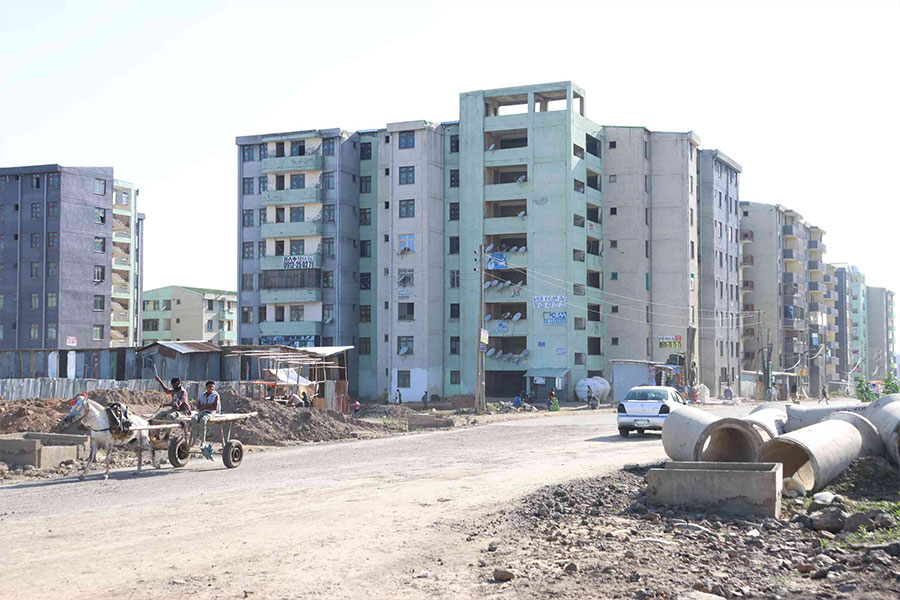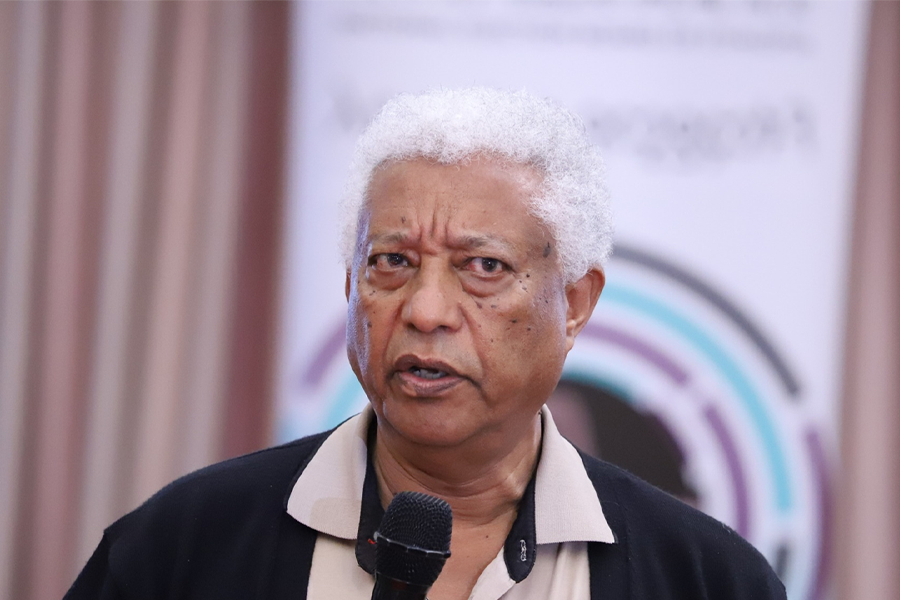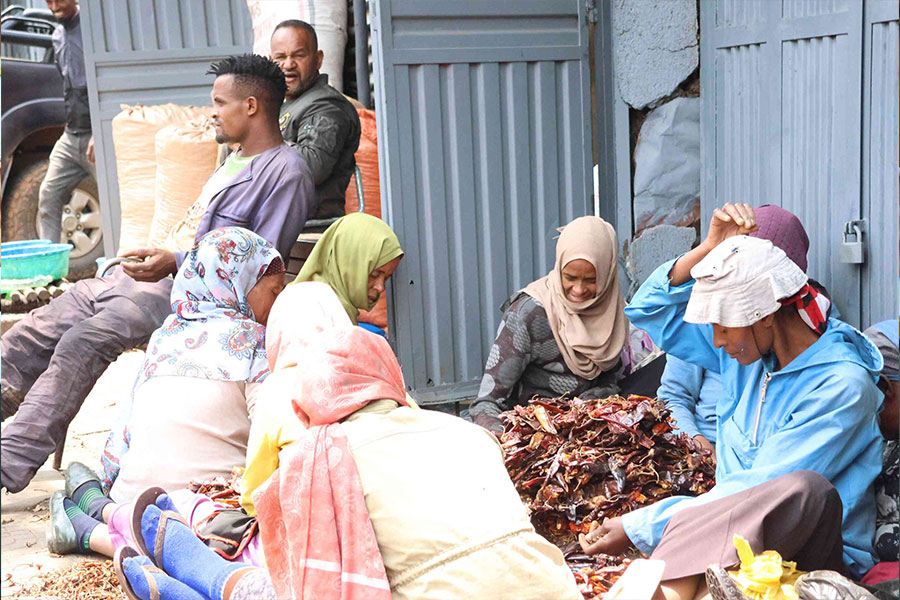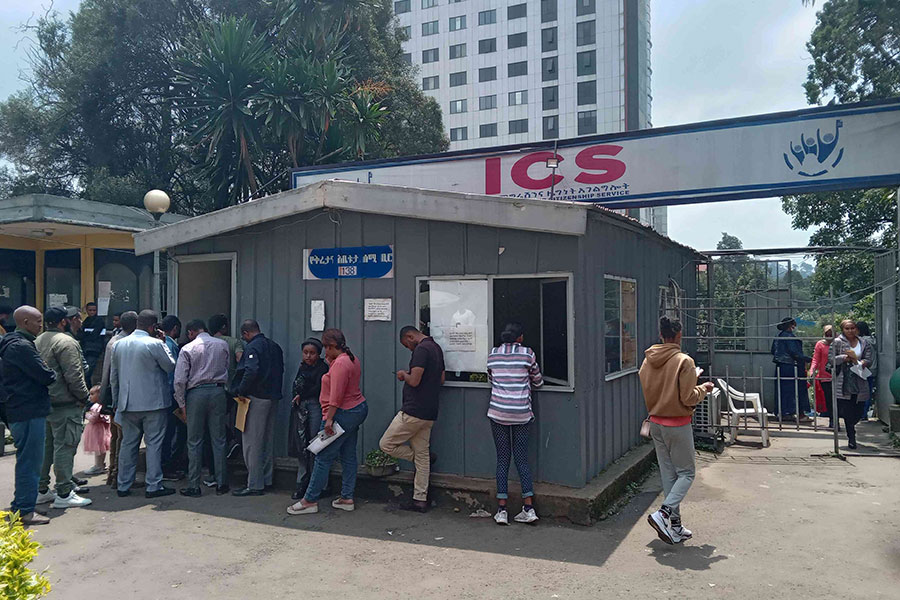
Viewpoints | Sep 03,2022
A drafted directive by the Environmental Protection Authority (EPA) set stricter regulations on lead-acid batteries (LABs) and mandates recycling of utilised LABs. The proposed law introduces tighter controls on production and management of lead-acid batteries.
However, the directive has been stalled at the Ministry of Justice (MoJ) for two years. Stakeholders complain about the delay to approve the lay by the Ministry.
Bereket Tesfaye, an advisor at the German Corporation for International Cooperation (GIZ), who has been supporting the EPA in drafting guidelines, stated that regulatory authorities are not doing enough. GIZ has invested over two million dollars in the last five years on the initiative that targets to address the risks of lead-acid batteries.
Addisu Tibebu, an environmental regulation lead at EPA, stated that the agency is working to create awareness while awaiting the directive’s approval by MoJ.
Lead exposure poses health risks, particularly to children. High levels of lead exposure can severely damage the brain and central nervous system, potentially leading to coma, convulsions, or death, according to the World Health Organization (WHO). Young children are vulnerable as they absorb four to five times more lead than adults.
WHO estimates that lead exposure resulted in 1.5 million deaths in 2021, primarily from cardiovascular effects, with one in three children being exposed. It also causes a loss of 98.2 million IQ points annually in Africa, resulting in economic losses of 134.7 billion dollars, according to WHO.
Meles Solomon, head of the Ministry of Health’s infant and children health desk stated lead exposure was given little attention as the government’s focus has been on infectious diseases.
Sources of lead contamination include toys, color paints, cosmetics, water pipes, and cookware. Meles said that improper lead waste disposal has caused serious health risks.
Last month EPA Director General Lelise Neme and State Minister for Health Dereje Duguma (MD) signed a Memorandum of Understanding (MoU) to strengthen collaboration and efforts in addressing lead related issues.
The Ministry of Health (MoH) plans to incorporate lead blood tests into its early childhood development program, which has started in 2019 to track children’s growth. Previously, children with cognitive problems were sent to psychiatric wards without investigating potential lead exposure.
The government banned lead exports in 2019. Between 2020/2021 and 2022/2023, 16 companies exported 16 million kg of lead scrap, earning two million dollars.
Tadesse Amera (PhD), the executive director of PAN Ethiopia, an institution that researches lead impacts, said that EPA needs capable personnel to regulate and control lead exposure.
Discarded car batteries, aging water pipes, and lead-contaminated cookware pose severe health threats, according to Tadesse. He says that lead poisoning is irreversible. “The workers will wake up once they know the effect,” he told Fortune, referring to battery recycling hands. “The directive is expected to improve worker safety.” He recommends public awareness, focus on prevention, and safety measures for workers involved in battery recycling.
Lead, primarily found in car batteries (85pc globally), is largely recycled. Ethiopia receives a large amount of these recycled batteries, according to Tadesse.
Paints, particularly bright, fast drying, and moisture resistance colours, contain lead. The government banned lead paints in 2018. However, lead poisoning remains widespread in Ethiopia.
Field assessments conducted by EPA and GIZ in June 2022 found out that lead exposure contributed to serious health and environmental risks. They uncovered that scrap metals that contain lead were being recycled into household utensils. Plates made with lead alloys, which can leach into food, and large cooking pots used by community organizations like Iddir, were found to contain lead. The pots are often locally manufactured from lead-containing alloys.
The proposed directive introduces an Extended Producer Responsibility (EPR) system which mandates lead-acid battery retailers and collectors to register and channel utilised batteries to licensed recyclers. Suleiman Idris, a recycler from Ayene Tsige Recycling Factory, said that his business’s survival depends on the implementation of the EPR system. Under this system, battery importers would manage the collection and sale of used batteries to recyclers.
The rules are based on the 2018 proclamation on hazardous waste management, which set strict regulation of lead waste. The law focuses on minimizing waste generation, proper handling and labeling, and requiring authorization for activities like transportation, storage, treatment, and recycling.
Suleiman says that there would not be sufficient lead battery supply for recycling, giving way to illegal scrapping and smuggling, if the government does not implement the strict rules soon.
Suleiman’s lead battery recycling factory, which costed 200 million Br is in the installation stage. The factory is expected to begin operations in four months.
In October, Ethiopia joined the Partnership for a Lead-Free Future. Launched at the UN General Assembly by USAID and UNICEF, the initiative targets to end childhood lead poisoning by 2040.
Environmental health expert Argaw Ambelu (Prof) conducted research in Jimma and Addis Abeba, finding lead levels in air and water exceeding WHO recommendations. He believes that lead poisoning is causing diseases like kidney failure. “It is a silent killer,” he said. “Its effect on health is not well studied” Everyday items such as coffee cups, food colorings, and children's toys are commonly contaminated with lead, according to him.
Editor's Note: This article was updated from its original form on December 18, 2024.
PUBLISHED ON
Dec 15,2024 [ VOL
25 , NO
1285]

Viewpoints | Sep 03,2022

View From Arada | Jul 27,2024

Editorial | May 24,2025

Fortune News | Jul 28,2024

View From Arada | Jul 07,2024

Fortune News | May 11,2025

Fortune News | Oct 27, 2024

Agenda | Jul 06,2025

Radar | Oct 12,2025

Agenda | Aug 12,2023

Dec 22 , 2024 . By TIZITA SHEWAFERAW
Charged with transforming colossal state-owned enterprises into modern and competitiv...

Aug 18 , 2024 . By AKSAH ITALO
Although predictable Yonas Zerihun's job in the ride-hailing service is not immune to...

Jul 28 , 2024 . By TIZITA SHEWAFERAW
Unhabitual, perhaps too many, Samuel Gebreyohannes, 38, used to occasionally enjoy a couple of beers at breakfast. However, he recently swit...

Jul 13 , 2024 . By AKSAH ITALO
Investors who rely on tractors, trucks, and field vehicles for commuting, transporting commodities, and f...

Oct 25 , 2025
The regulatory machinery is on overdrive. In only two years, no fewer than 35 new pro...

Oct 18 , 2025
The political establishment, notably the ruling party and its top brass, has become p...

Oct 11 , 2025
Ladislas Farago, a roving Associated Press (AP) correspondent, arrived in Ethiopia in...

Oct 4 , 2025
Eyob Tekalegn (PhD) had been in the Governor's chair for only weeks when, on Septembe...